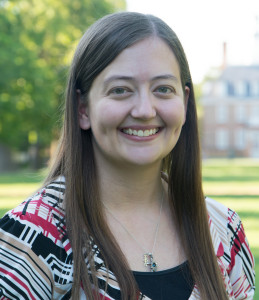 By Lauren McDuffie
By Lauren McDuffie
2015 BJC Fellow
The first full day of the BJC Fellows Seminar was focused on two separate but vitally important conversations. BJC Executive Director Brent Walker spent the morning leading us in a consideration of the biblical and theological underpinnings of religious liberty, and our afternoon with Professor Michael Meyerson was spent considering the lives and work of several important Baptist leaders: Roger Williams, John Leland, and Isaac Backus. I found my own voice as we looked to these members of the Baptist clergy who were compelled by their identity as Christians and as Baptists to defend religious liberty. Baptist ministers like John Leland played a key role in carving out the central place religious liberty came to hold in the system of government developed in the United States. What a legacy to learn from and to be a part of as I live into my own calling as a Baptist minister.
It is a challenge as someone who has grown up in the modern Baptist church to consider how much we have changed. Professor Meyerson began his discussion of Baptist leaders by explaining the ways that Baptists in the colonial and early American period of history saw themselves as a “hated minority.” I became increasingly aware of how much more privileged Baptists are in the United States today, as a powerful denominational group within the context of an American Christianity dominated by mainline Protestants and evangelicals. I also became aware of how much this privilege impacts the way religious liberty shows up as part of the framework of what it means to be Baptist, or if it even shows up at all. When we no longer face the urgent necessity to fight for our own religious liberty, why would we be compelled to fight for anyone else’s?
The answer is, of course, in the biblically-based understanding of soul freedom which we had already spent our morning with Walker discussing. If we understand ourselves and our fellow travelers on this journey – fellow Baptist or not – to be created in the image of a God who is sovereign and free, then how else can we understand the journey of faith except as one in which we are free to participate as we feel called? And if this is the case, how much more important is it for us to defend the right of all to express their faith in a way that is authentic to them, even if it does not look the same as the faith that is authentic to us? Walker described this soul freedom as our “God-infused liberty of conscience … not because we are Christian, but because we are human.” It seems that this implies an inherent responsibility to defend that freedom for all, even if we have personally been afforded that freedom at this point in history.
The seminar was an excellent way to begin the fellowship year, providing us with tools and resources to use in each of our unique ministerial settings. I came back from our gathering to present a unit project to my Clinical Pastoral Education peers entitled “Advocacy as Ministry,” and I was able to frame this conversation with the roles and responsibilities of clergy in the context of religious liberty. What does pastoral leadership look like when we feel compelled to advocate for concerns beyond the walls of our own churches? It was a helpful exercise to invite other clergy nearing the end of our residency year to think about how these issues will impact their ministry. I am also looking forward to integrating these tools into my work as a congregational minister. It seems that many churches are looking for ways to move “outside of our walls,” and what better way to do that than advocating for a freedom which is such a central part of our grounding as Baptists? I hope to encourage my community of faith to see this work as an essential part of our identity as both Christians and as Baptists.
Read other reflections from BJC Fellows and visit BJConline.org/Fellows for more on the program.




